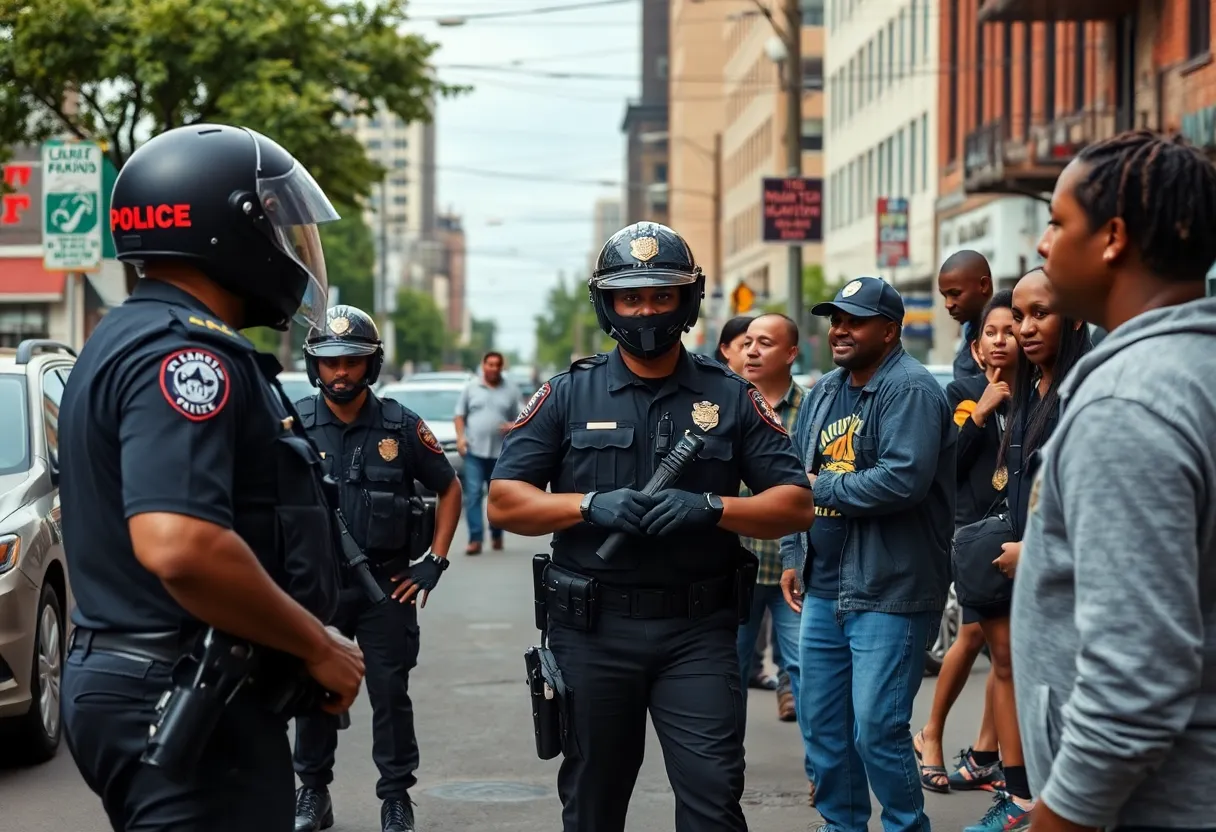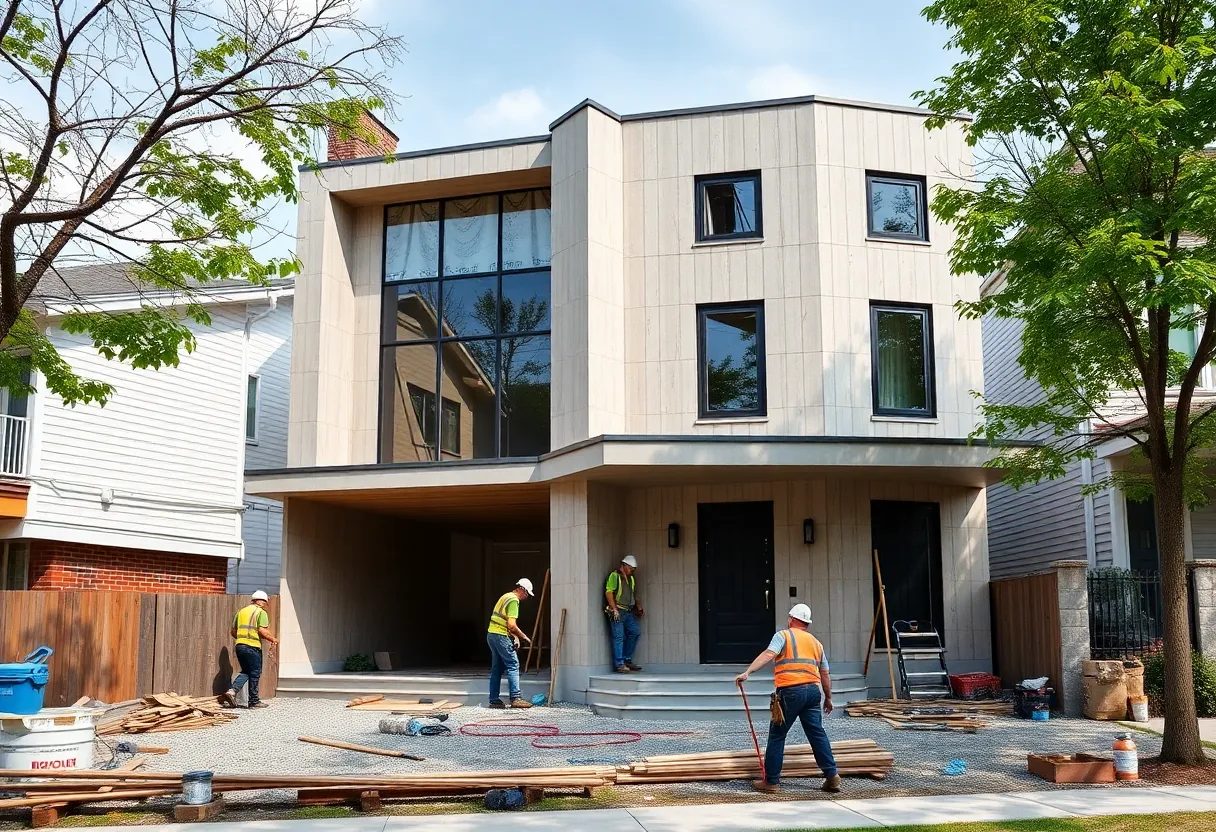News Summary
Mayor Paul Young expressed his discontent over President Trump’s announcement regarding the deployment of the National Guard to Memphis in response to rising crime rates. Young clarified that he did not support military intervention, preferring additional community resources and officers instead. This decision follows recent escalations in federal involvement in local policing. The context highlights ongoing debates about crime rates and federal intervention, raising concerns among local leaders and citizens regarding the use of military forces in civil matters.
Memphis – Mayor Paul Young was taken by surprise when President Donald Trump announced on Fox News the deployment of the National Guard to Memphis, citing it as part of a broader effort to combat crime in Democratic-led cities. The announcement came during an interview on Friday, marking a significant shift in the administration’s approach to handling rising crime rates in urban areas. Mayor Young expressed his dissatisfaction with the decision, stating he did not want the National Guard to be present in Memphis.
The National Guard’s deployment is seen as an escalation of the Trump administration’s use of military forces, following a similar deployment in Washington, D.C., about a month earlier. During the interview, Trump claimed that both Young and Tennessee Governor Bill Lee were in favor of the decision. However, Young contradicted this statement, highlighting his concerns over military intervention in local policing.
Young had been engaged in discussions regarding federal troop deployment earlier in the week but received no confirmation from either the governor’s office or the White House until the announcement aired. The discussions had centered around seeking financial support for local law enforcement to address increased violence and crime rates, rather than bringing in military assistance.
Memphis faces a pressing issue with violent crime, reporting a rate of 2,501 crimes per 100,000 people, ranking it among the highest in the United States according to FBI statistics. In light of the city’s struggles with violence, Trump referred to Memphis as “deeply troubled” and indicated a desire to address crime in several other cities including New Orleans, Baltimore, and Chicago.
Days before the announcement, Mayor Young outlined to the administration his wish for additional patrol officers and resources aimed at community support rather than a military presence. He expressed a preference to avoid images reminiscent of the turbulent times following the assassination of Dr. Martin Luther King Jr. in 1968, a period marked by significant National Guard intervention in the city.
The deployment stands in contrast to recent events in Washington, D.C., where Trump took command of the local police department and activated the National Guard, asserting that the city was “virtually crime-free.” Experts have raised significant concerns about utilizing the National Guard in civilian law enforcement roles, with legal challenges earlier this year labeling similar deployments in other cities as unlawful.
Trump noted considerations for deploying National Guard troops to Chicago before ultimately deciding on Memphis, stating that he had been advised by a Union Pacific railroad executive to target Memphis instead of Chicago, which he described as unsafe for visitors. In response to the announcement, Governor JB Pritzker of Illinois criticized Trump’s actions as a political maneuver and expressed deep concerns regarding the militarization of local law enforcement.
The context of this announcement touches on a broader conversation about the role of federal intervention in local matters, particularly in communities already facing significant issues related to crime rates, systemic violence, and the dynamics of policing. The decision to deploy National Guard units to Memphis continues to raise questions about established practices in local law enforcement and the implications of increased military presence in American cities.
As the situation develops, local leaders, citizens, and law enforcement agencies await further clarification on the National Guard’s role and the expected impact on crime and community relations in Memphis.
Deeper Dive: News & Info About This Topic
HERE Resources
Local Business Owners Split on National Guard Presence in D.C.
Tennessee Basketball Targets Top Prospects for 2026 Class
Major NBA Offseason Trades Change Fantasy Basketball Landscape
Additional Resources
- BBC News: Trump Deploys National Guard to Memphis
- Washington Post: Trump’s National Guard Decision
- New York Times: Memphis National Guard Deployment
- AP News: Memphis Faces National Guard Presence
- Fox News: Memphis Rep Critiques Trump’s Decision
- Wikipedia: United States National Guard
- Google Search: National Guard Memphis
- Google Scholar: National Guard Law Enforcement
- Encyclopedia Britannica: National Guard
- Google News: Trump Memphis National Guard

Author: STAFF HERE WASHINGTON DC
The WASHINGTON DC STAFF WRITER represents the experienced team at HEREWashingtonDC.com, your go-to source for actionable local news and information in Washington, DC, and beyond. Specializing in "news you can use," we cover essential topics like product reviews for personal and business needs, local business directories, politics, real estate trends, neighborhood insights, and regional news affecting the area—with deep expertise drawn from years of dedicated reporting and strong community input, including local press releases and business updates. We deliver top reporting on high-value events such as the National Cherry Blossom Festival, Kennedy Center Honors, and the Washington Auto Show. Our coverage extends to key organizations like the Greater Washington Board of Trade and Destination DC, plus leading businesses in government contracting and technology that power the local economy such as Lockheed Martin and Amazon. As part of the broader HERE network, we provide comprehensive, credible insights into the dynamic landscape of the Washington metropolitan area.




